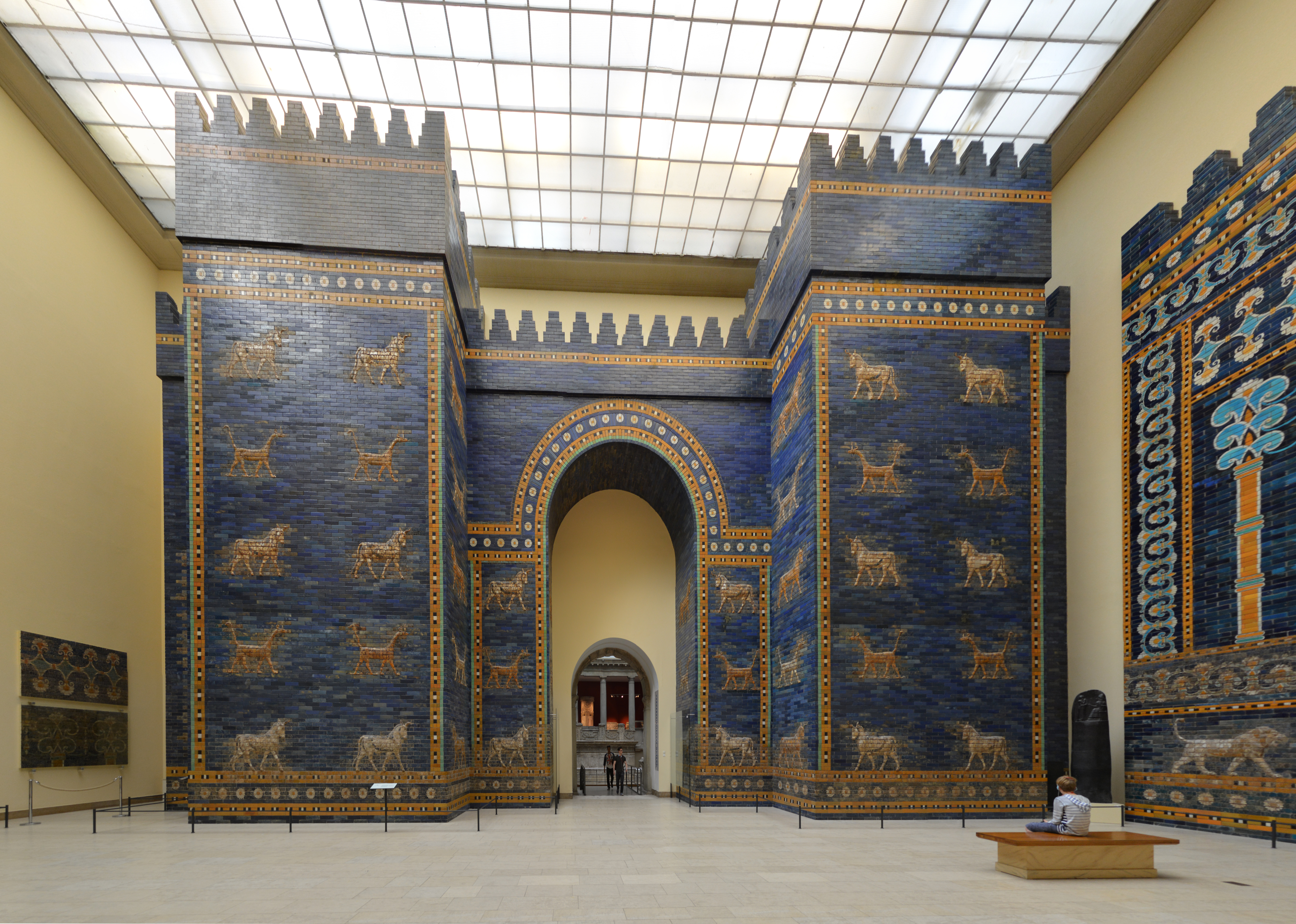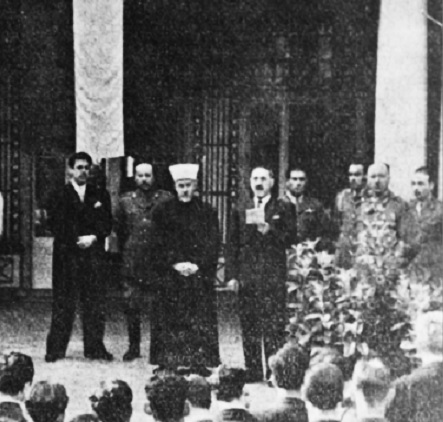|
Adam Falkenstein
Adam Falkenstein (17 September 1906 – 15 October 1966) was a German Assyriologist. He was born in Planegg, near Munich in Bavaria and died in Heidelberg. Life Falkenstein studied Assyriology in Munich and Leipzig. He was involved primarily with cuneiform, particularly discoveries in Uruk, and with the Sumerians and their language. From 1930 onward, Falkenstein taught as a professor of Assyriology at the Göttingen University. In 1940 he accepted a teaching assignment at Heidelberg University as a professor of semitic languages. He joined the Nazi Party in 1939. In 1941 he flew to Baghdad with Fritz Grobba when Haj Amin al-Husseini and Rashid Ali al-Gaylani organized a brief, pro-German coup supported by weapons shipments from the German Reich. Afterward he was employed by the German foreign service in Turkey. Nothing is known about his de-nazification. From 1939 to 1944 he was editor of the professional journal ''"Orientalische Literaturzeitung"''; from 1950 until his deat ... [...More Info...] [...Related Items...] OR: [Wikipedia] [Google] [Baidu] |
Assyriologist
Assyriology (from Greek , ''Assyriā''; and , '' -logia'') is the archaeological, anthropological, and linguistic study of Assyria and the rest of ancient Mesopotamia (a region that encompassed what is now modern Iraq, northeastern Syria, southeastern Turkey, and northwestern and southwestern Iran) and of the related cultures that used cuneiform writing. The field covers Sumer, the early Sumero-Akkadian city-states, the Akkadian Empire, Ebla, the Akkadian and Imperial Aramaic speaking states of Assyria, Babylonia and the Sealand Dynasty, the migrant foreign dynasties of southern Mesopotamia, including the Gutians, Amorites, Kassites, Arameans, Suteans and Chaldeans. The large number of cuneiform clay tablets preserved by these Sumero-Akkadian and Assyro-Babylonian cultures provide an extremely large resource for the study of the period. The region's (and indeed the world's) first cities and city-states like Ur are archaeologically invaluable for studying the growth of urbaniz ... [...More Info...] [...Related Items...] OR: [Wikipedia] [Google] [Baidu] |
Nazi Party
The Nazi Party, officially the National Socialist German Workers' Party (german: Nationalsozialistische Deutsche Arbeiterpartei or NSDAP), was a far-right politics, far-right political party in Germany active between 1920 and 1945 that created and supported the ideology of Nazism. Its precursor, the German Workers' Party (; DAP), existed from 1919 to 1920. The Nazi Party emerged from the Extremism, extremist German nationalism, German nationalist, racism, racist and populism, populist paramilitary culture, which fought against the communism, communist uprisings in post–World War I Germany. The party was created to draw workers away from communism and into nationalism. Initially, Nazi political strategy focused on anti–big business, anti-bourgeoisie, bourgeois, and anti-capitalism, anti-capitalist rhetoric. This was later downplayed to gain the support of business leaders, and in the 1930s, the party's main focus shifted to Antisemitism, antisemitic and Criticism of ... [...More Info...] [...Related Items...] OR: [Wikipedia] [Google] [Baidu] |
German Assyriologists
German(s) may refer to: * Germany (of or related to) **Germania (historical use) * Germans, citizens of Germany, people of German ancestry, or native speakers of the German language ** For citizens of Germany, see also German nationality law **Germanic peoples (Roman times) * German language **any of the Germanic languages * German cuisine, traditional foods of Germany People * German (given name) * German (surname) * Germán, a Spanish name Places * German (parish), Isle of Man * German, Albania, or Gërmej * German, Bulgaria * German, Iran * German, North Macedonia * German, New York, U.S. * Agios Germanos, Greece Other uses * German (mythology), a South Slavic mythological being * Germans (band), a Canadian rock band * "German" (song), a 2019 song by No Money Enterprise * ''The German'', a 2008 short film * "The Germans", an episode of ''Fawlty Towers'' * ''The German'', a nickname for Congolese rebel André Kisase Ngandu See also * Germanic (other) * Germa ... [...More Info...] [...Related Items...] OR: [Wikipedia] [Google] [Baidu] |
Linguists From Germany
Linguistics is the scientific study of human language. It is called a scientific study because it entails a comprehensive, systematic, objective, and precise analysis of all aspects of language, particularly its nature and structure. Linguistics is concerned with both the cognitive and social aspects of language. It is considered a scientific field as well as an academic discipline; it has been classified as a social science, natural science, cognitive science,Thagard, PaulCognitive Science, The Stanford Encyclopedia of Philosophy (Fall 2008 Edition), Edward N. Zalta (ed.). or part of the humanities. Traditional areas of linguistic analysis correspond to phenomena found in human linguistic systems, such as syntax (rules governing the structure of sentences); semantics (meaning); morphology (structure of words); phonetics (speech sounds and equivalent gestures in sign languages); phonology (the abstract sound system of a particular language); and pragmatics (how social contex ... [...More Info...] [...Related Items...] OR: [Wikipedia] [Google] [Baidu] |
People From The Kingdom Of Bavaria
A person ( : people) is a being that has certain capacities or attributes such as reason, morality, consciousness or self-consciousness, and being a part of a culturally established form of social relations such as kinship, ownership of property, or legal responsibility. The defining features of personhood and, consequently, what makes a person count as a person, differ widely among cultures and contexts. In addition to the question of personhood, of what makes a being count as a person to begin with, there are further questions about personal identity and self: both about what makes any particular person that particular person instead of another, and about what makes a person at one time the same person as they were or will be at another time despite any intervening changes. The plural form "people" is often used to refer to an entire nation or ethnic group (as in "a people"), and this was the original meaning of the word; it subsequently acquired its use as a plural form of per ... [...More Info...] [...Related Items...] OR: [Wikipedia] [Google] [Baidu] |
1966 Deaths
Events January * January 1 – In a coup, Colonel Jean-Bédel Bokassa takes over as military ruler of the Central African Republic, ousting President David Dacko. * January 3 – 1966 Upper Voltan coup d'état: President Maurice Yaméogo is deposed by a military coup in the Republic of Upper Volta (modern-day Burkina Faso). * January 10 ** Pakistani–Indian peace negotiations end successfully with the signing of the Tashkent Declaration, a day before the sudden death of Indian prime minister Lal Bahadur Shastri. ** Georgia House of Representatives, The House of Representatives of the US state of Georgia refuses to allow African-American representative Julian Bond to take his seat, because of his anti-war stance. ** A Commonwealth Prime Ministers' Conference convenes in Lagos, Nigeria, primarily to discuss Rhodesia. * January 12 – United States President Lyndon Johnson states that the United States should stay in South Vietnam until Communism, Communist aggression there is e ... [...More Info...] [...Related Items...] OR: [Wikipedia] [Google] [Baidu] |
1906 Births
Events January–February * January 12 – Persian Constitutional Revolution: A nationalistic coalition of merchants, religious leaders and intellectuals in Persia forces the shah Mozaffar ad-Din Shah Qajar to grant a constitution, and establish a national assembly, the Majlis. * January 16–April 7 – The Algeciras Conference convenes, to resolve the First Moroccan Crisis between France and Germany. * January 22 – The strikes a reef off Vancouver Island, Canada, killing over 100 (officially 136) in the ensuing disaster. * January 31 – The Ecuador–Colombia earthquake (8.8 on the Moment magnitude scale), and associated tsunami, cause at least 500 deaths. * February 7 – is launched, sparking a naval race between Britain and Germany. * February 11 ** Pope Pius X publishes the encyclical ''Vehementer Nos'', denouncing the 1905 French law on the Separation of the Churches and the State. ** Two British members of a poll tax collecting ... [...More Info...] [...Related Items...] OR: [Wikipedia] [Google] [Baidu] |
De-nazification
Denazification (german: link=yes, Entnazifizierung) was an Allied initiative to rid German and Austrian society, culture, press, economy, judiciary, and politics of the Nazi ideology following the Second World War. It was carried out by removing those who had been Nazi Party or SS members from positions of power and influence, by disbanding or rendering impotent the organizations associated with Nazism, and by trying prominent Nazis for war crimes in the Nuremberg trials of 1946. The program of denazification was launched after the end of the war and was solidified by the Potsdam Agreement in August 1945. The term ''denazification'' was first coined as a legal term in 1943 by the U.S. Pentagon, intended to be applied in a narrow sense with reference to the post-war German legal system. However, it later took on a broader meaning. In late 1945 and early 1946, the emergence of the Cold War and the economic importance of Germany caused the United States in particular to lose i ... [...More Info...] [...Related Items...] OR: [Wikipedia] [Google] [Baidu] |
Turkey
Turkey ( tr, Türkiye ), officially the Republic of Türkiye ( tr, Türkiye Cumhuriyeti, links=no ), is a list of transcontinental countries, transcontinental country located mainly on the Anatolia, Anatolian Peninsula in Western Asia, with a East Thrace, small portion on the Balkans, Balkan Peninsula in Southeast Europe. It shares borders with the Black Sea to the north; Georgia (country), Georgia to the northeast; Armenia, Azerbaijan, and Iran to the east; Iraq to the southeast; Syria and the Mediterranean Sea to the south; the Aegean Sea to the west; and Greece and Bulgaria to the northwest. Cyprus is located off the south coast. Turkish people, Turks form the vast majority of the nation's population and Kurds are the largest minority. Ankara is Turkey's capital, while Istanbul is its list of largest cities and towns in Turkey, largest city and financial centre. One of the world's earliest permanently Settler, settled regions, present-day Turkey was home to important Neol ... [...More Info...] [...Related Items...] OR: [Wikipedia] [Google] [Baidu] |
Rashid Ali Al-Gaylani
Rashid Ali al-Gaylaniin Arab standard pronunciation Rashid Aali al-Kaylani; also transliterated as Sayyid Rashid Aali al-Gillani, Sayyid Rashid Ali al-Gailani or sometimes Sayyad Rashid Ali el Keilany (" Sayyad" serves to address higher standing male persons) ( ar, رشيد عالي الکَيلاني, ) (1892 – 28 August 1965) was an Iraqi politician who served as Prime Minister of the Kingdom of Iraq on three occasions: from March to November 1933, from March 1940 to February 1941 and from April to May 1941. He is chiefly remembered as an ardent Arab nationalist who attempted to remove the British influence from Iraq by starting a coup against the government in 1941. During his brief tenures as Prime Minister in 1940 and 1941, he attempted to negotiate settlements with the Axis powers during World War II in order to counter British influence in Iraq. Early life Rashid Ali was the son of Sayyid Abdul Wahhab al-Gaylani and born into the prominent Baghdad-based Gaylani famil ... [...More Info...] [...Related Items...] OR: [Wikipedia] [Google] [Baidu] |
Haj Amin Al-Husseini
Mohammed Amin al-Husseini ( ar, محمد أمين الحسيني 1897 – 4 July 1974) was a Palestinian Arab nationalist and Muslim leader in Mandatory Palestine. Al-Husseini was the scion of the al-Husayni family of Jerusalemite Arab notables, who trace their origins to the eponymous grandson of Muhammad. Husseini received education in Islamic, Ottoman, and Catholic schools. In 1912, he went to pursue further studies in Cairo's ''Dar al-Da'wa wa al-Irshad'', an Islamic seminary under the tutelage of Salafist theologian Muhammad Rashid Rida. After studying there for two years, he went on to serve in the Ottoman army in World War I. At war's end he stationed himself in Damascus as a supporter of the Arab Kingdom of Syria. Following the Franco-Syrian War and the collapse of Arab Hashemite rule in Damascus, his early position on pan-Arabism shifted to a form of local nationalism for Palestinian Arabs and he moved back to Jerusalem. From as early as 1920 he actively opposed Zion ... [...More Info...] [...Related Items...] OR: [Wikipedia] [Google] [Baidu] |

_1938.jpg)



